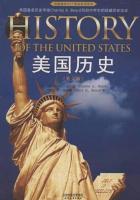
第17章 THE COLONIAL PERIOD(16)
The Royal Provinces.-Of the thirteen English colonies eight were royal provinces in 1776,with governors appointed by the king.Virginia passed under the direct rule of the crown in 1624,when the charter of the London Company was annulled.The Massachusetts Bay corporation lost its charter in 1684,and the new instrument granted seven years later stripped the colonists of the right to choose their chief executive.In the early decades of the eighteenth century both the Carolinas were given the provincial instead of the proprietary form.New Hampshire,severed from Massachusetts in 1679,and Georgia,surren-dered by the trustees in 1752,went into the hands of the crown.New York,transferred to the Duke of York on its capture from the Dutch in 1664,became a province when he took the title of James II in 1685.New Jersey,after remaining for nearly forty years under proprietors,was brought directly under the king in 1702.Maryland,Penn-sylvania,and Delaware,although they retained their proprietary char-acter until the Revo-lution,were in some respects like the royal colonies,for their gov-ernors were as indepen-dent of popular choice as were the appointeesof King George.OnlyThe Royal Governor's Palace at New Bernetwo colonies,Rhode Island and Connecticut,retained full self-government on the eve of the Revolution.They alone had governors and legislatures entirely of their own choosing.
The chief officer of the royal province was the governor,who enjoyed high and important powers which he naturally sought to augment at every turn.He enforced the laws and,usually with the consent of a council,appointed the civil and military officers.He granted pardons and reprieves;he was head of the highest court;he was commander-in-chief of the militia;he levied troops for defense and enforced martial law in time of invasion,war,and rebellion.In all the provinces,except Massachusetts,he named the councilors who composed the upper house of the legislature and was likely to choose those who favored his claims.He summoned,adjourned,and dissolved the popular assembly,or the lower house;he laid before it the projects of law desired by the crown;andhe vetoed measures which he thought objectionable.Here were in America all the elements of royal prerogative against which Hampden had protested and Cromwell had battled in England.
The colonial governors were generally surrounded by a body of office-seekers and hunters for land grants.Some of them were noblemen of broken estates who had come to America to improve their fortunes.The pretensions of this circle grated on colonial nerves,and privileges granted to them,often at the expense of colonists,did much to deepen popular antipathy to the British government.Favors extended to adherents of the Established Church displeased Dissenters.The reappearance of this formidable union of church and state,from which they had fled,stirred anew the ancient wrath against that combination.
The Colonial Assembly.-Coincident with the drift toward administra-tion through royal governors was the second and opposite tendency,namely,a steady growth in the practice of self-government.The voters of England had long been accustomed to share in taxation and law-making through representa-tives in Parliament,and the idea was early introduced in America.Virginia was only twelve years old (1619)when its first representative assembly appeared.As the towns of Massachusetts multiplied and it became impossible for all the mem-bers of the corporation to meet at one place,the representative idea was adopted,in 1633.The river towns of Connecticut formed a representative system under their "Fundamental Orders"of 1639,and the entire colony was given a royal charter in 1662.Generosity,as well as practical considerations,induced such pro-prietors as Lord Baltimore and William Penn to invite their colonists to share in the government as soon as any considerable settlements were made.Thus by one process or another every one of the colonies secured a popular assembly.
It is true that in the provision for popular elections,the suffrage was finally restricted to property owners or taxpayers,with a leaning toward the freehold qualification.In Virginia,the rural voter had to be a freeholder owning at least fifty acres of land,if there was no house on it,or twenty-five acres with a house twenty-five feet square.In Massachusetts,the voter for member of the assembly under the charter of 1691had to be a freeholder of an estate worth forty shillings a year at least or of other property to the value of forty pounds sterling.In Pennsylvania,the suffrage was granted to freeholders owning fifty acres or more of land well seated,twelve acres cleared,and to other persons worth at least fifty pounds in lawful money.
Restrictions like these undoubtedly excluded from the suffrage a very considerable number of men,particularly the mechanics and artisans of the towns,who were by no means content with their position.Nevertheless,it wasrelatively easy for any man to acquire a small freehold,so cheap and abundant was land;and in fact a large proportion of the colonists were land owners.Thus the assemblies,in spite of the limited suffrage,acquired a democratic tone.